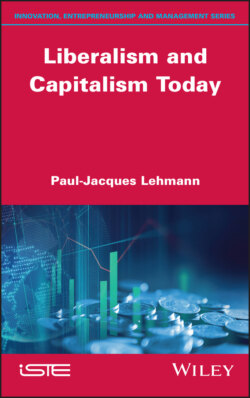Читать книгу Liberalism and Capitalism Today - Paul-Jacques Lehmann - Страница 25
1.4.2. The evolution of the activities of state bureaucracy actors
ОглавлениеLegal rationality leads both to a change in the nature of the politician and their action and requires new skills for civil servants.
In fact, with state bureaucracy, a new kind of politician appears: the “political professionals” who replace the former public figures. The parties are now led by these people, who head up the meetings of militants and ensure that their candidates are nominated to participate in the elections. Hence, Weber (2019) states that these professionals “take over the political enterprise that has become a veritable machine. Only he whom the machine is ready to follow can become the leader”. In order for these leaders to be accepted, Weber analyzes the message they must convey: they must persuade those who will obey them that they have the qualities necessary for the exercise of power.
There are two ways of doing politics: either occasionally (when a voter votes) or as a profession (as an elected official and representative of the people). Similarly, professional politicians fall into two categories: those who live “for” politics and make it their life’s mission, and those who live “from” politics as the main source of their income. The former can only be recruited in a plutocratic way, from among the wealthy, because doing politics without being paid requires holding a personal fortune. In order to prevent the latter from becoming dominant in a democracy, they must be paid. The economic consequences of these respective situations are that it is not uncommon for leaders to use their dominant position to also live “off” politics and to promote their own interests, especially through fierce struggles to grant themselves or their relatives the distribution of reserved jobs.
The power of bureaucratic officials is strictly regulated through legally defined capacities. Indeed, in modern times, authority no longer rests on the same characteristics as before. What matters now is competence, the search for efficiency and the formal rationalization of activities. As a result, individuals in charge of authority are recruited through competitive examinations. Having to demonstrate independence and impartiality, they are remunerated according to their qualifications and qualities, which are themselves controlled according to precise standards by a well-defined hierarchy accepted by all. Moreover, corruption is much more difficult to perpetrate.
Thus, for Weber, the modern state brings about a change in the professions of these administrators, who must henceforth behave like employees of a company “As in a company, the minister is above all the representative of the political constellation in power. His task is therefore to enforce the program of this constellation. Things do not happen differently in a private company”.
Civil servants must therefore receive specific training and apply the methods imposed on them. They fall into two categories: those whom Weber calls “career civil servants” (those who are obliged to leave their post when the political official who chose them is no longer in office or when representatives of the incumbent majority are defeated in elections) and those he refers to as “political officials” (who can be displaced at will by the government or laid off).
